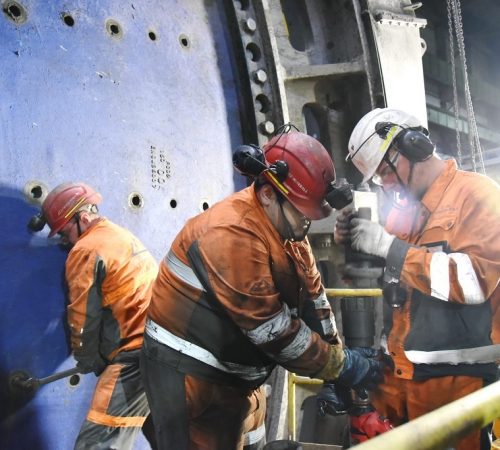Corporate social responsibility
At HES, we work to contribute to the world of tomorrow. We play a significant role in the ongoing supply of necessary components for daily life that are required to create, maintain, and enhance the environment around us. It’s what we do and why we go to work. For all of our stakeholders, including our employees, clients, shareholders, and the communities and nations in which we do business, we want to foster long-term growth and create value.

Safety. Focus on the future
Naturally, we draw lessons from the past, but we also pay attention to “leading indicators,” which means we concentrate on improvement and prevention. Every terminal receives daily measurements of everything. We raise our standards and develop global best practices in this way. Continuous measurement entails constant performance improvement for our safety program. Management and operating personnel regularly conduct Safety Observation Rounds. They are taught to spot areas that could use improvement. Their findings are recorded, evaluated, and taken into account. We encourage all of our employees to report close calls because doing so increases the likelihood that incidents won’t happen again. A near-miss is treated as an actual incident, with the root cause being determined to make sure it never happens again. Every terminal receives daily measurements of everything. We raise our standards and develop global best practices in this way.
Our Environment
At Oil Tank Supply, we all share a sense of obligation to the environment that goes above and beyond the minimum standards we have set for ourselves and the legal requirements that apply to our business. We are constantly investing in cutting-edge, environmentally friendly solutions for our terminals, both old and new, so that they leave a smaller carbon and environmental footprint. Weaning our terminals off the gas grid, using solar-powered vehicles to power our plant vehicles, investing in vapour recovery technology to lessen the impact of our loading operations, constructing strippers to produce low-sulfur naphtha, and spending money on waste gas treatment to cut emissions are some specific examples from our terminals. We picture a world in which everyone has access to energy, other necessities like renewable energy sources, and the energy solutions of the future..
